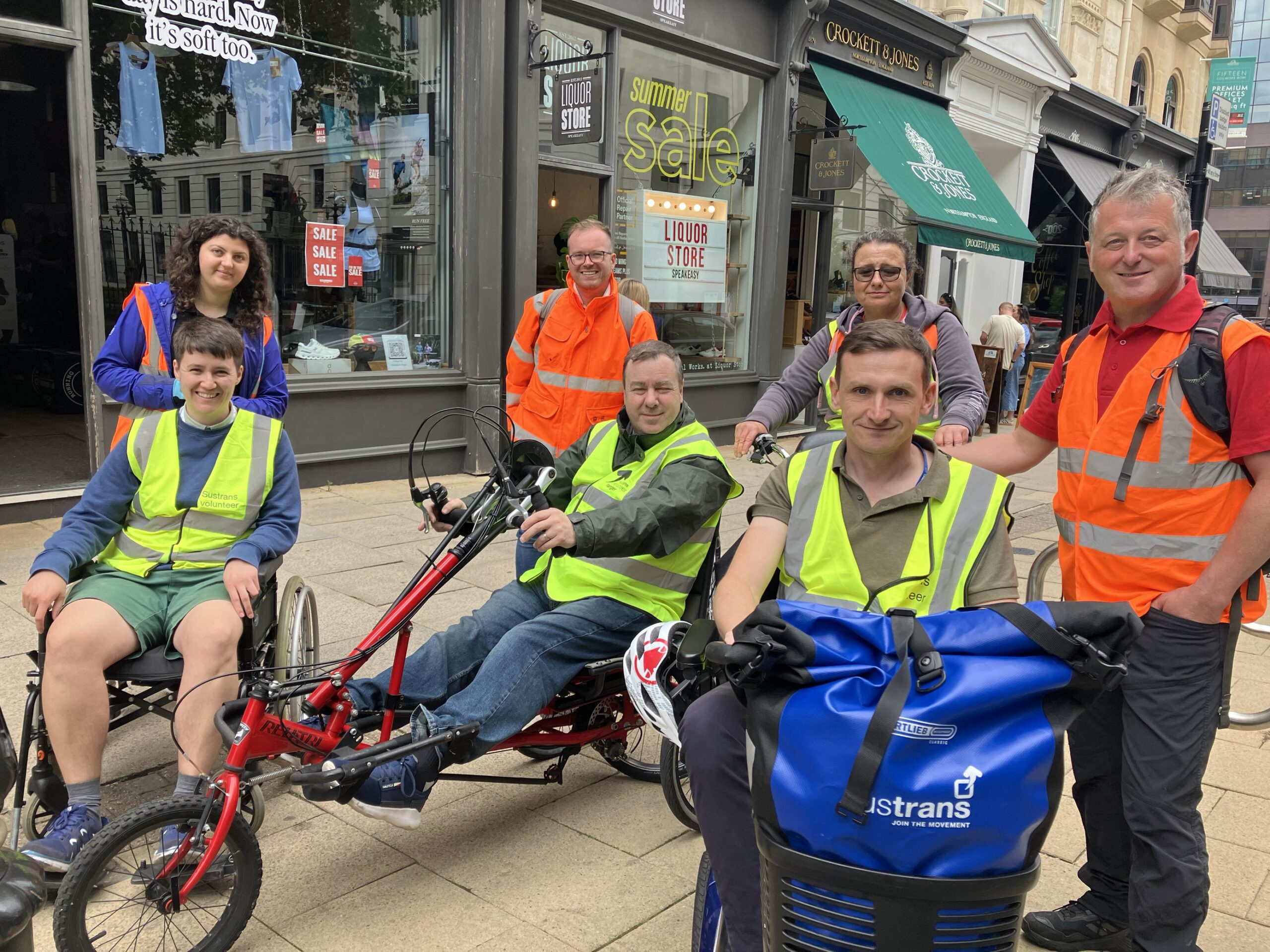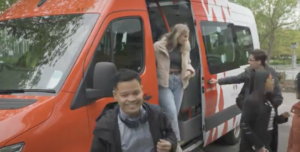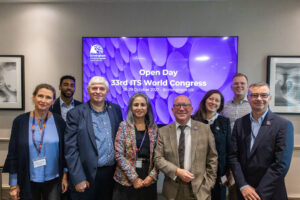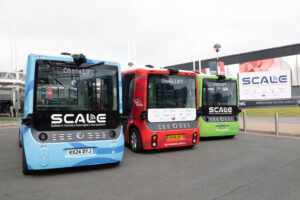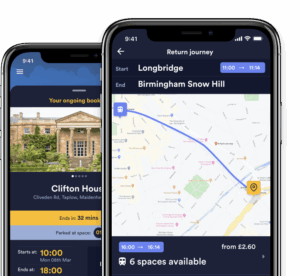The everyday challenges and barriers faced by disabled people in Birmingham were highlighted as part of an event seeking positive change.
The accessibility audit event was hosted by Sustrans and funded by Colmore Business District (BID) and Transport for West Midlands. Sustrans is the UK-wide charity that works for and with communities, helping them come to life by walking, wheeling and cycling to create healthier places and happier lives for everyone.
Local authority officers used adaptive cycles, trikes and wheelchairs to navigate around Colmore Row to demonstrate first-hand how existing transport infrastructure discriminates against those who rely on these and other mobility aids.
Participants described the experience as “eye-opening” as they navigated through crowds, obstacles on the pavements, traffic and pedestrian crossings. The positioning of buttons on some crossings forced adapted bikes and trikes into the road and users said they didn’t feel they had enough time to safely cross.
“The onus is on you not to hit anyone or anything,” commented one person, who described the experience of using a mobility aid as “exhausting”.
Led by Sustrans’ experts alongside disabled people with lived experience of travelling in the city centre, the event will help inform Birmingham City Council’s business case for reimagining the city centre’s streets and aims to set new standards for accessibility and cycling.
The ambitious plans for the future of transport in Birmingham could act as a model for other cities to follow.
Alistair Crisp, Sustrans’ Paths for Everyone Project Manager for Midlands & East, said:
“This event highlights the everyday challenges faced by disabled people when navigating our city and aims to reimagine Birmingham’s transport infrastructure to be truly accessible for all.
“By bringing together officers, councillors and representatives from various organisations, along with the lived experiences of disabled individuals, we hope to foster a deeper understanding of existing barriers and inspire innovative solutions.
“Our goal is to create a city where everyone, regardless of their mobility needs, can walk, wheel or cycle with ease. Sustrans, in partnership with the local community and organisations like Wheels for Wellbeing, is committed to ensuring that the voices of disabled people are heard and that our urban spaces are inclusive for all.
“We look forward to the positive changes this event will inspire and to seeing Birmingham lead the way in accessible transport.”
Crisp will also be joined by representatives from Birmingham City Council for a led walk around Colmore Row to look at accessibility on Tuesday 20th August.
Representatives from Wheels for Wellbeing, the Sight Loss Council, Coventry City Council and HS2 were among those who attended the two-day event in July.
Kate Ball, Campaigns and Policy Lead for Wheels for Wellbeing, said: “The Colmore BID accessibility event was a great opportunity to share good practice and educate a range of organisations about pan-impairment public realm accessibility. Thank you to Sustrans for organising this event – we’re always really happy to collaborate to improve understanding of accessible design.”
Steve Keith, a Volunteer Member with the Sight loss Council, added:“It was an excellent opportunity to be invited to do the wheeled accessibility audit around Birmingham city centre. It highlighted the similarities that blind people and wheelchair users have in navigating footpaths with multiple obstacles and cracked and uneven surfaces.
“Doing this as a shared experience from multiple teams shows what changes need to be made to improve accessibility. These range from traffic lights that need to be either audible or tactile, to cafés needing kick strip barriers around the tables so that blind people don’t knock over people’s drinks.”
Sandeep Shingadia, Director of Strategic Partnerships and Integration for Transport for West Midlands, said:
“We are looking to make the West Midlands an exemplary region for disabled people. So, this insight will be useful in helping us achieve that as we develop safer cycling and walking routes around our towns and cities.
“Encouraging more people to cycle, wheel and walk, especially for shorter journeys, will play a crucial part in reducing traffic congestion, cutting carbon emissions and improving air quality.”
Paul Fielding, Chair of Colmore BID’s Accessible and Sustainable Working Group, and Deputy Chair of the Board Directors, said: “We have been concerned for the legibility and safety of none-car users across the city centre for some time. This project and consultation events allow us to work in collaboration with city partners and the local authority to closely inform better inclusive and safe street configurations.
“This is a key step forward in our BID4 Business Plan, and we are honoured to play a key role in creating safer streets and setting new standards for best practice.”
Educational, informative and reflective, the event highlighted the social model of disability, which explains that disability is created by barriers in society, and looked at innovative ways in which we can reimagine spaces to work for everyone.



